- Home
- Linwood Barclay
A Tap on the Window Page 8
A Tap on the Window Read online
Page 8
Yeah, but you don’t mind scaring the shit out of them when it suits you.
I was confident I’d find her. I couldn’t recall, offhand, how many times I’d been hired to track down missing kids—easily twenty—and only once had I failed. And that was because the kid—a twelve-year-old boy—came home on his own before I could find him.
When I finally did find Claire—at a boyfriend’s place, a kids’ hostel in L.A., some beach down in Florida—what would the plan be then? Drag her back to Griffon?
Hardly.
But I’d tell her that people back home were worried about her. I’d recommend that she call her folks. I’d give her shit for getting me involved.
That’d be it for me.
Sean Skilling would lead me to Hanna, and Hanna would lead me to Claire. One way or another.
I found the Skilling residence about half a mile away, on Dancey. It had been dusk when I’d arrived at the Rodomskis’, but by the time I got to the Skillings’ night had descended completely. I drove slowly down the street, looking for numbers, marveling at how many people don’t make them easy to spot. If they didn’t want to do it for the fire department, you’d think they’d at least do it for the pizza delivery guy.
The house was even numbered, so it had to be on the left, and I figured I was only a couple of doors away when I saw a car’s headlights come on in a driveway just ahead. It had been backed in, so the lights intercepted my path. I glanced over as I passed by, blinded briefly. Brass numbers were affixed to a large decorative stone set by the curb. This was the place.
It wasn’t a car after all, but a pickup. A black Ford Ranger. Once I had the headlight glare out of my eyes, I was able to spot a young man in a ball cap behind the wheel.
I pulled over to the opposite curb as the truck roared onto the street, accelerating so quickly it fishtailed, and tore off in the direction I’d come from. I executed a fast three-point turn and hit the gas. The pickup had disappeared beyond the bend, so I thought it was unlikely he’d noticed me turning around to come after him.
A left turn, then a right, and we were on Danbury. I had a hunch where he might be going.
Four minutes later, it proved right. The Ranger crossed the street and wheeled into the parking lot behind Patchett’s. I pulled over to the shoulder so I could get a look at him as he got out of the truck and walked briskly into the bar. While he wasn’t running, there was a sense of urgency in his stride, and he moved like an athlete. He was six feet, hundred and eighty pounds, with dirty blond hair falling out from beneath a cap branded with two broad horizontal stripes across the front. A Bills cap. He wouldn’t be the only one in Patchett’s wearing one of those.
Once he’d disappeared inside, I put the Honda in park, leaving it behind a couple of Harley-Davidsons with raised handlebars, crossed the street and entered the bar. Patchett’s was like a thousand other bars. Dim lighting, loud music, railings and chairs and tables made of heavy oak, the smell of beer and sweat and human longing hanging in the air. There were about a hundred people in here, some standing at the bar, others at the tables working on ribs and wings and potato skins along with their pitchers of beer, about a dozen hanging out around the pool table.
I wasn’t the oldest guy in the room, but the crowd was mostly made up of men and women in their twenties. And, knowing Patchett’s as I did, probably several in their late teens. They were easy to spot, and not just because they looked younger. They were the ones trying the hardest to look cool while drinking. Holding the necks of their beer bottles between their index and middle fingers, like they’d been drinking this way their whole lives.
I scanned the room for Skilling, spotted him talking to a man at the bar. With the speakers blaring the 1969 hit “Proud Mary” by Creedence Clearwater Revival—there couldn’t have been a person here who was alive when that came out, and even I’d only just made it—I couldn’t make out what he was saying. I’m no lip reader, so I sidled up to the bar, behind him, caught the bartender’s attention and ordered a Corona, all the while trying to hear what the kid was saying.
It wasn’t that hard, once I got close, considering everyone had to shout to be heard over the music. The man Sean was talking to yelled, “Haven’t seen her, man. When’d you last talk to her?”
“Saw her last night!” he shouted.
“She not answering her cell?”
He shook his head. “Look, if you see her, tell her to call me, okay?”
“Yeah, no problem!”
Sean Skilling moved away from the bar and crossed the room to talk to someone standing in a group of three by the pool table, where a couple of overweight bearded men in black leather jackets, who didn’t look like they were from around here, were thoroughly engrossed. I kept my position for about thirty seconds, then took my beer and ambled in that direction.
There was a pillar about two feet away from him. Taking the side that would put my back to him, I leaned against it, but there was too much noise to pick up anything he had to say, even though his voice was raised. So I pushed myself off and wandered close to the group, pretending to watch the two bikers play pool. I thought they were wannabes, guys who didn’t make the cut for Hell’s Angels but wanted to look the part.
“Sorry, man!” I heard a girl say. “I saw her here, like, yesterday? I think it was yesterday, or it might have been the night before!”
Did Hanna know her boyfriend was so interested in finding Claire? Was Sean Skilling the guy in the pickup Claire was trying to get away from? But would Hanna have helped Claire pull a disappearing act so her own boyfriend would stop stalking her? Did that make any sense at all?
“Okay, well, if you see her, call me?” Sean asked.
Nods all around. A young man in a black T-shirt with a Batman insignia on it asked, “Hey, can I place an order with you for Saturday night?”
“Not right now, man.”
Sean spotted someone else he knew in the far corner of the room. I didn’t see much need to eavesdrop on another conversation that was going to be the same as the previous two, and besides, there was no place over there where I could lurk undetected.
I watched Sean ask some questions of a young man who was sitting at a table, wiping chicken wing sauce off his fingers with a moistened napkin. The man shook his head, and Sean nodded. Then he turned, scanned the room for anyone else he might know. Spotted a waitress, stopped her as she was crossing the room with two pitchers on a tray that she was balancing just above her shoulder. She shook her head, moved on.
Sean Skilling stood there, as if wondering what to do. He dug into his jacket for his cell phone, probably checking for a text or message he might not have heard come in, then shoved the phone back into his pocket.
He headed for the door.
I set my beer on the closest table and went out after him.
He was about to round the corner of the building when I called out to him. “Sean!”
He whirled around, squinted at me. “Yeah?”
“Sean Skilling?”
“Who the hell are— Do I know you?”
“I’m Cal Weaver.”
He cocked his head at a funny angle. “Weaver?”
“That’s right.”
“Scott’s dad.”
“Yeah,” I said.
“You’re, like, the private dick guy.” Emphasis on the word you’d expect.
“Yeah,” I said.
He shook his head violently and raised a hand, palm out. “I don’t know anything about anything.”
“You don’t even know what I want to ask you about.”
“It’s about Scott, right? I got nothing to tell you.”
“I’m not here about him. I’m trying to find Claire Sanders.”
His mouth opened, but nothing came out for a second. “What the hell have you got to do with that?”
I heard the bar d
oor open and close behind me, a couple laughing as they walked across the street.
“Sean, listen to me. I need to talk to Hanna. I think Hanna might know where Claire is. The police are trying to find her.”
He waved a hand at me. “Fuck you, pal.”
I took a step toward him. “I’m not out to cause trouble for you. I just want to make sure Claire’s okay. Where can I find Hanna? Is she with Claire?”
I heard the door open again behind me, the brief cacophony of voices and music spilling out into the night air.
“Come on,” I pleaded. “We’ll go someplace quieter, get a coffee, you can fill me in.”
Sean Skilling laughed. “Yeah, like I’m going to go someplace with you, you fucking psycho.”
I thought I caught him looking past my shoulder for half a second. I glanced that way as someone yelled, “Take off, man!” I didn’t move quickly enough to stop the fist from connecting, though I did get an arm up in time to partly deflect it. But the blow still caught me in the side of the head, and I went down before I could get any kind of look at my attacker.
As I hit the ground, non-celestial stars swirling before my eyes, I heard two sets of footsteps running off in opposite directions.
“Fucking hell,” I muttered, putting a hand to the side of my head. I’d landed on my back. I rolled over and brought myself up to my knees, making sure the world wasn’t rotating too speedily before I got to my feet. From the parking lot, I heard the growl of a pickup, then the squeal of tires as the truck shifted from loose gravel to pavement.
“You okay?”
Standing over me was a heavyset woman, mid-sixties, gray hair hanging straight down to her shoulders in a style she probably hadn’t changed in four decades. She gave me a grin.
“Looks like you just got your ass whupped. Why don’t you come in, we’ll see if you’re in need of medical attention. My name’s Phyllis. I own this dump. And I think I got a pretty good idea who you are.”
ELEVEN
Phyllis led me back through Patchett’s, behind the counter, and into an office. I briefly considered protesting, telling her I was fine. But first, she had a viselike grip on my arm. And second, I thought she’d be worth talking to. As we passed the guy who’d handed me my Corona, she said, “Get me some ice in a towel, Bill, for Sam Spade here.
“Have a seat,” she ordered, releasing her grasp on me and pointing to a leather couch across from a desk. I sat. Bill appeared with a red-and-white-checkered towel in which he’d collected half a dozen ice cubes.
“Put that on your noggin,” Phyllis said. I took the towel and held it against my temple, which, I had to admit, was throbbing. As Bill left and closed the door behind him, Phyllis parked her butt on the edge of the desk and held up a fist in front of my eyes.
“How many fingers am I holding up?”
“That’s funny,” I said.
She extended the middle one. “How about now?”
“One.”
She laughed. “I think you’ll live. But you keep that ice on there. Head injuries are no joke. Remember how Mannix got knocked out nearly every week? That guy should have been brain-damaged.”
“I’m guessing the Mannix and Sam Spade references mean you know what I do for a living,” I said.
She nodded. “I recognized you when I saw you lying down there. You’re Cal Weaver.”
“And you’re Phyllis . . .”
“Phyllis Pearce.”
“If we’ve met before, I’m sorry, but I don’t remember.”
“We haven’t,” she said, shaking her head. “But I’ve seen you around. I make a point of knowing who everybody in Griffon is. Lived here my whole life, so whenever a new face comes to town, I ask who it belongs to. You moved here, what, eight, ten years ago?”
“Six,” I said.
“Sorry about your boy,” she said.
I raised my head slowly to look her in the eye. “Thanks.”
“Could have been anybody, you know.”
“I’m sorry?”
“Could have been anybody who sold him those drugs.” I must have looked surprised at what she seemed to be implying she knew, and it made her smile. “I hear you’ve been asking around. That what you were doing here tonight?”
“No,” I said.
“Because,” she said, talking right over my denial, “I can’t have that. You want to go around interrogating kids about what happened to your boy—and I don’t blame you one bit in that regard—you can’t be doing it on my premises. Starting a fight on my front steps, I won’t have that. You do what you have to do, but don’t be causing any trouble on my turf.”
“I didn’t start a fight,” I said, feeling like some kid telling his mother he was blameless. “And that’s not why I’m here.” I took the ice away from my head for a second. “I’m looking for Claire Sanders.”
“The mayor’s kid?”
“Yeah.”
“That who slugged you out there? Some little thing of a girl?”
“No. I don’t know who it was. I was coldcocked. I wanted to talk to a kid named Sean Skilling. You seem to know everyone around here, so you probably know that name.”
“Ford dealer’s kid.”
“Yeah.” I paused. The ice was so cold it was starting to hurt, but I held it in place. “I should take you on as a partner, you know so much of what goes on. Save me a lot of legwork.”
Phyllis Pearce grinned. “I got enough to do, running my vast empire.” She opened her arms wide. “What’d you want with the Skilling kid?”
“His girlfriend is friends with Claire. She may know where Claire is.”
Phyllis Pearce nodded slowly. “Got it. I think Claire was around here a night or two ago. Whatcha want to talk to her for?”
“I just want to find her,” I said.
“Who you working for?”
I looked at her and said nothing.
“Oh, I get it. Client confidentiality and all that.” She went around the desk and dropped into her oversized, overly padded office chair. There was a keyboard in front of her, but the monitor was angled off to the side, so we could see one another. She brushed her long gray hair off her shoulders, raised her head so it would fall on her back. “Although it would stand to reason it’s her dad who wants her found.”
“I would imagine he does,” I said.
“Who’s the Skilling kid’s girlfriend?”
I told her.
“Hanna, oh yeah, Chris Rodomski’s kid. We had to throw that drunken son of a bitch out of here all the time fifteen years back. Well, my husband. Not me.”
“Your husband’s the bouncer?” I hadn’t noticed anyone on the premises who looked like an age-appropriate match for Phyllis.
“It was among Harry’s duties back then. But I lost my husband seven years ago.”
“I’m sorry,” I said.
She shrugged. “Not easy, running this place on my own. Our son ended up pursuing a different line of work, but I’ve got good people working for me here.”
I stopped pressing the cold, damp towel to my temple. “What should I do with this?”
Pearce pointed to a small sink along one wall. She had a small bar set up there. I got up, tossed the towel into the sink, the shrunken cubes clinking into the drain. I scanned the room, which had maybe twenty old black-and-white photos of Griffon from its early days. Horses and buggies in the streets in some of them.
She noticed me admiring them and said, “No, I didn’t take them myself. Even that was before my time.”
There was one shot of a much younger, slimmer Phyllis, her hair in exactly the same style but dark, arm in arm with a man I presumed was Harry, standing in the street in front of Patchett’s. Maybe an inch taller, curly-haired, and thinner than his spouse.
“This your husband?” I asked.
�
�Yup. But not Harry. That’s my first husband there. That was taken around 1985 or so, before he got cancer and passed on. Harry I met in 1993, married him a couple of years after that.” She cackled. “I was about sixty pounds lighter then. But as I gained weight, I gained wisdom.”
I sat back down on the couch. Maybe she was expecting me to leave, now that I was done treating my injury, but I still had things to ask her.
“Obviously, you know about my son, Scott. Did you ever see him around here?”
She thought. “It’s possible, but I don’t know. If they look like they’re still reading the Hardy Boys, they don’t get in. It’s like throwing back a fish that’s too small. Your boy, he was still pretty wet behind the ears.”
“Probably half the clientele here right now shouldn’t be.”
Phyllis Pearce smiled warily. “For someone who’s lived here as long as you have, you don’t seem to have an idea of how things work in Griffon.”
“Enlighten me.”
She leaned forward, her elbows on the desk, her heavy breasts resting on the keyboard. “Sure, we got people having a drink here, a little something to eat, who may technically be under twenty-one years of age. The State of New York, in its infinite wisdom, raised the drinking age from nineteen to twenty-one back in 1985. Based on your observations, Mr. Weaver, would you say that stopped people under the age of twenty-one from drinking?”
“No.”
“Of course not. I would imagine that in 1985 you yourself were under the age of twenty-one.” When I said nothing she continued. “And did that law put the fear of God into you, or did you and your friends get hammered every weekend anyway?”
“We pretty much got hammered.”
“Damn right you did. We know what kids are going to do, because we know what we did when we were that age. Better it’s happening in one place, where we can keep an eye on it, don’t you think?”
“So we’re surrendering. We’ve decided we can’t control what our kids do, so we’re just happy if we know where they’re doing it.”

 Chase
Chase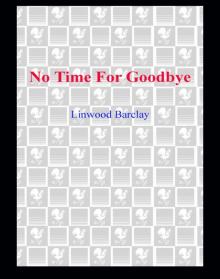 No Time for Goodbye
No Time for Goodbye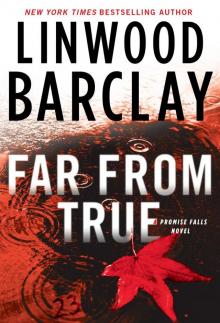 Far From True
Far From True Lone Wolf
Lone Wolf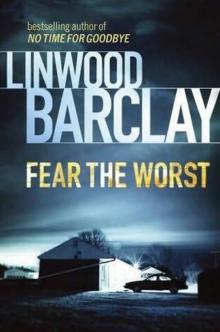 Fear the Worst
Fear the Worst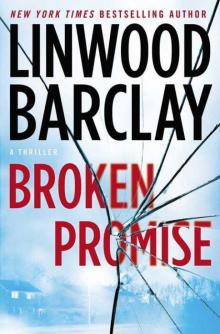 Broken Promise
Broken Promise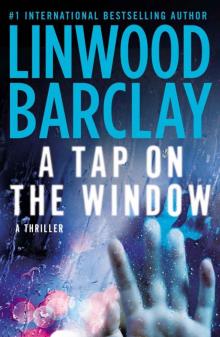 A Tap on the Window
A Tap on the Window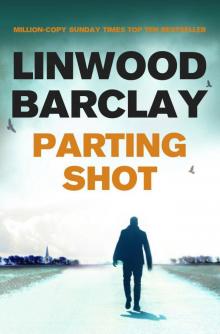 Parting Shot
Parting Shot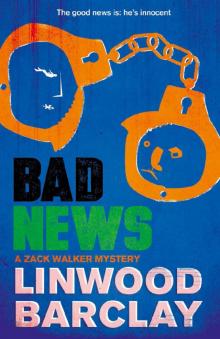 Bad News
Bad News Too Close to Home
Too Close to Home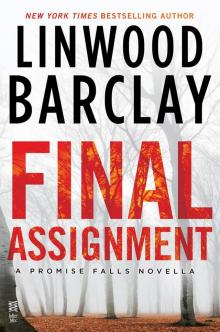 Final Assignment
Final Assignment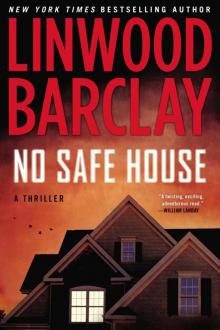 No Safe House
No Safe House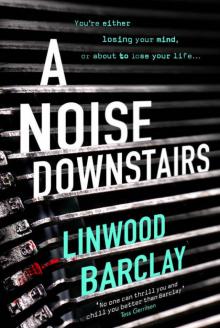 A Noise Downstairs
A Noise Downstairs Bad Guys
Bad Guys The Accident
The Accident Stone Rain
Stone Rain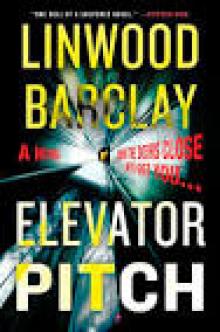 Elevator Pitch
Elevator Pitch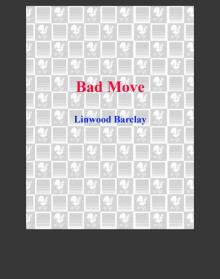 Bad Move
Bad Move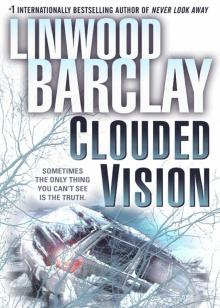 Clouded Vision
Clouded Vision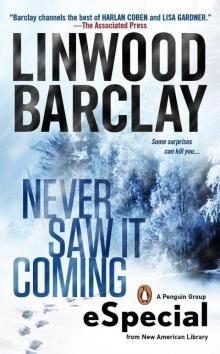 Never Saw It Coming
Never Saw It Coming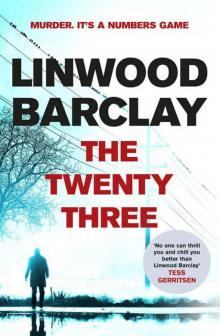 The Twenty-Three
The Twenty-Three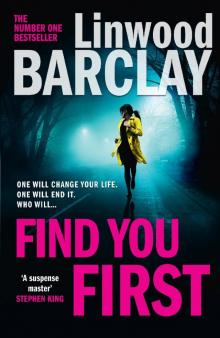 Find You First
Find You First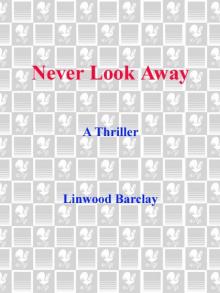 Never Look Away
Never Look Away Elevator Pitch (UK)
Elevator Pitch (UK)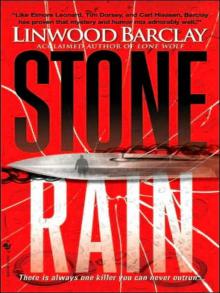 Stone Rain zw-4
Stone Rain zw-4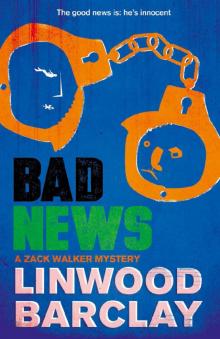 Bad News: A Zack Walker Mystery #4
Bad News: A Zack Walker Mystery #4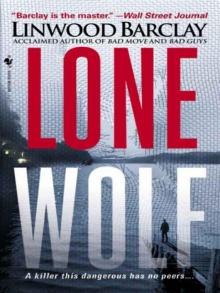 Lone Wolf zw-3
Lone Wolf zw-3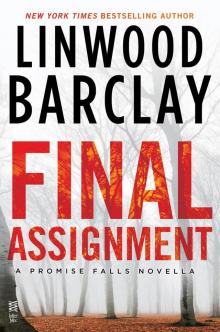 Final Assignment: A Promise Falls Novella
Final Assignment: A Promise Falls Novella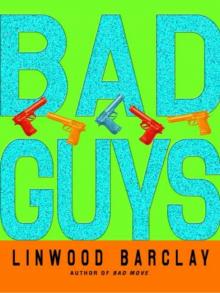 Bad Guys zw-2
Bad Guys zw-2 Never Saw It Coming: (An eSpecial from New American Library)
Never Saw It Coming: (An eSpecial from New American Library)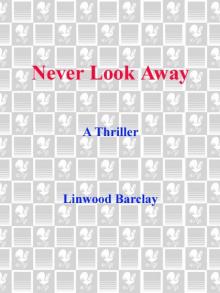 Never Look Away: A Thriller
Never Look Away: A Thriller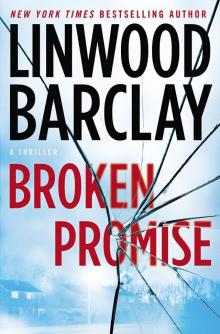 Broken Promise: A Thriller
Broken Promise: A Thriller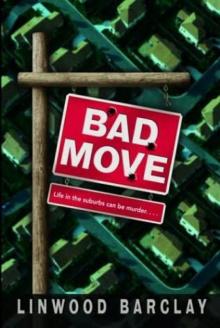 Bad Move zw-1
Bad Move zw-1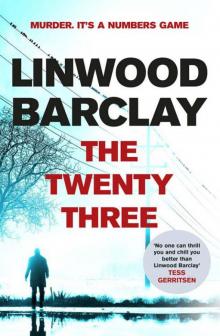 The Twenty-Three 3 (Promise Falls)
The Twenty-Three 3 (Promise Falls)